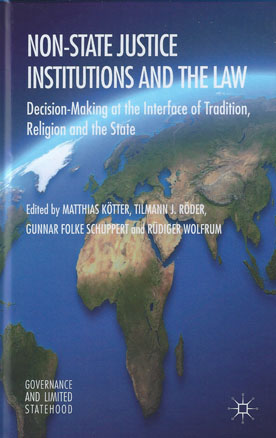
Traditional forms of dispute resolution have become an important aspect in the political and academic debates on law and development and in numerous cases of constitution-making and judicial reform.
This book focuses on decision-making by non-state justice institutions at the interface of traditional, religious, and state laws. The authors discuss the implications of non-state justice for the rule of law, presenting case studies on traditional councils and courts in Pakistan, South Sudan, Ethiopia, Bolivia and South Africa.
Looking at the legitimacy of non-state justice from various angles, this collection explores the ways in which non-state legal systems and governmental structures are embedded in official state justice institutions and how this affects the protection of human rights.